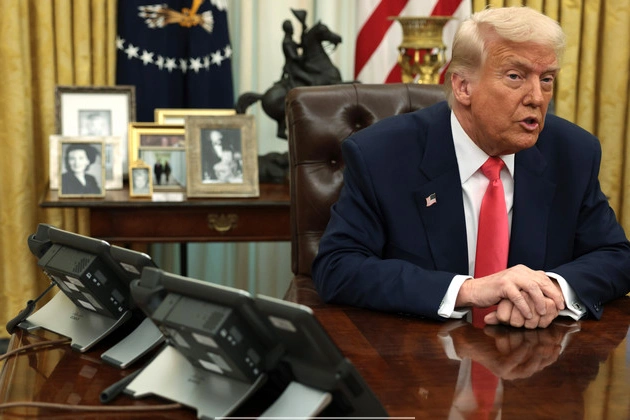
President Donald Trump’s ‘deferred resignation’ plan for federal workers has stirred significant controversy and confusion within the workforce. More than 2 million federal employees are currently awaiting clarity on the program’s future following a recent hearing in front of U.S. District Judge George O’Toole.
The Legal Battle
During the hearing, Judge O’Toole refrained from giving a definitive stance on the program’s legality, maintaining a temporary pause that extends the deadline for employees to participate. The program, championed by Elon Musk and the Department of Government Efficiency, allows federal workers to resign immediately but remain on the payroll until September.
Legal Challenges and Concerns
Opponents, including lawyer Elena Goldstein from Democracy Forward, argue that the program lacks legal authorization and deceives employees by guaranteeing salaries through September, despite funding only approved until March 14. Goldstein emphasizes the arbitrary nature of the program’s rules and its potential negative impact on unionized workers.
On the other hand, Justice Department attorney Eric Hamilton defends the program as a humane alternative, providing federal workers with the choice to opt-out of returning to office without financial repercussions. Hamilton highlights the discretionary powers granted to executive officials in setting workplace policies.
Unions’ Legal Stand
The unions challenging the program express concerns over its legality and the misleading promises made to employees. They seek to prevent the government from enforcing the resignation deadline, which has been subject to extensions by Judge O’Toole’s orders.
Hamilton predicts a surge in program uptake closer to the deadline, emphasizing the need to maintain certainty and avoid prolonged uncertainty among federal workers.
Implications and Reactions
The ‘deferred resignation’ offer, sent to over 2 million federal employees, has raised questions about eligibility, work requirements during the resignation period, and the overall impact on workforce dynamics. The offer’s subject line, reminiscent of Musk’s previous downsizing efforts, adds to the confusion surrounding its terms.
Despite the White House reporting 40,000 resignations under the program, labor unions continue to contest its legality and fairness towards federal workers.
Conclusion
The ‘deferred resignation’ plan remains a point of contention, reflecting broader debates around government downsizing and workforce management. As the legal battle ensues, federal workers grapple with uncertainty and conflicting narratives about their future under this program.















